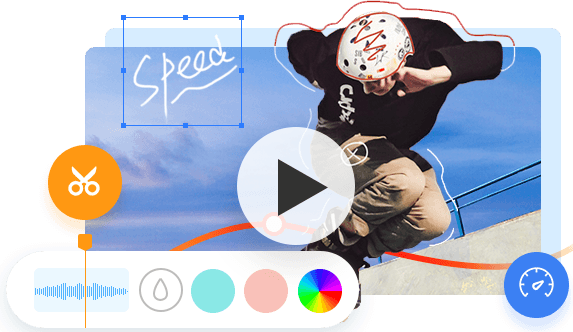Thanks to the advancement in computer graphics, filmmakers today are armed with the best visual effects software to make us believe the unbelievable. From Avatar to Inception, these blockbusters blur the line between the virtual and the reality, and lead us to a fantasy world so cool and so wild beyond our imagination. It's no surprise that you want to know more about the tools that make all these happen, and start creating your own movie magic.
Visual effects (VFX) are imagery elements that don't exist in real word during on-set shooting. It is created to be incorporated as an integral part of the video. In the past, it could be done physically, such as drawing on glass for matte painting. Thanks to computer graphics science, now you can use CGI (computer-generated imagery) and VFX software to nail the task.
If you simply want to add cool video effects to your footage without using professional tools that require years of learning, you can use beginner-friendly video effects software, which has effects built in as templates to use in a click.
Best Video Effects Software for Beginners - VideoProc Vlogger
For beginners, when you are looking for special effects software to make videos, what you have in mind is an easier solution, a tool that has all those effects ready to use as templates, customizable to some extent.
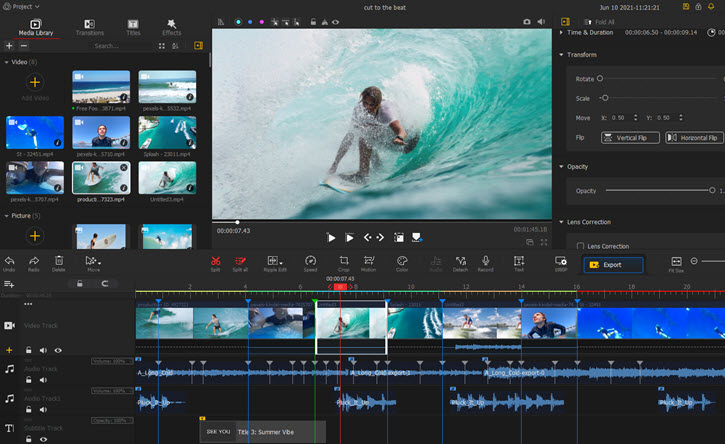
VideoProc Vlogger is such an easy to use video effects software, with rich resources of video effects templates. You can simply drag and drop the VFX presets to the video for it to take effect. You can preview the look simultaneously in the Preview Window. There are popular video effects such as fire, glitch, VHS, retro effects.
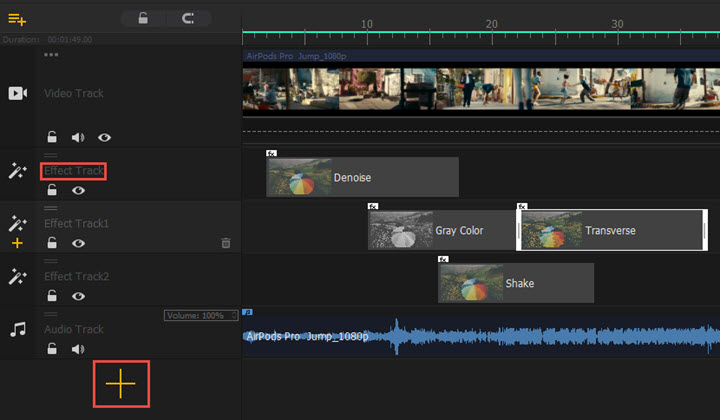
Keying is also easy and effective to use in VideoProc Vlogger. It has a built-in Chroma Key feature, with which you can designate the background color and remove it precisely.
Compositing with blend mode is also supported in VideoProc Vlogger. You can use the presets such as screen, color burn, multiply, color dodge etc. Even if you have zero experience, you will quickly know the ropes using this special effects software.

Click the buttons below to free download VideoProc Vlogger to add video effects:
Features:
- A growing library with special effects templates.
- Easy to apply to video with customizable options.
- Compositing, green screen (chroma key), alpha channel supported.
- 3-level GPU acceleration for speedy and high quality exporting.
Best Video Effects Software for Professionals
For professionals, you can use VFX software listed below to create visually enchanting effects, with techniques such as keying, tracking, rotoscoping, 3D modeling and so on.
1. Blender
Platform: Windows 8.1 and 10; macOS 10.12 and higher, Linux
Price: Free open-source
Creators on budget love to add Blender to their arsenal as a video editor, yet the true strength of Blender lies in 3D creation. Blender is an open-source free 3D modeling software that allows you to do most things that are otherwise charged in high-end programs such as Maya and 3Ds Max.
Admittedly, Blender is not the industry standard, just as the Hollywood elites are more likely to use Avid Media Composer than other open-source video editing software. But that doesn't prevent Blender from being the best free special effects software to create 3D printed models, animations, and video game assets. Every essential feature you can think of are included, be it modeling, sculpting, character rigging, animation, or simulation.
With active community and resourceful video tutorials, Blender is something beginners and independent creators can settle for, without spending a dime. You can learn more from this in-depth review of Blender.
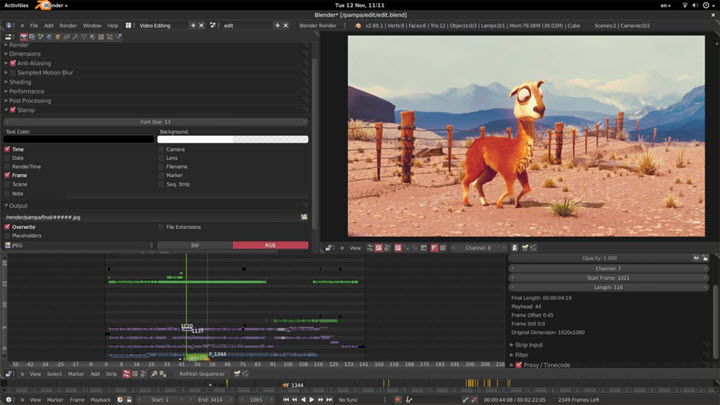
Features:
- Comprehensive UV sculpting tools for modeling.
- Extensive Python API for customization and scripting.
- Non linear animation makes it easy to create life-like independent movement.
2. Natron
Platform: Windows 8.1/10, macOS 10.13 or higher, Linux 3.10 or higher
Price: Free open-source
Comparing to Blender that is baked with a complete VFX pipeline, Natron is programmed to focus on only one aspect of VFX, that is compositing. This open source nodal compositing software is a perfect choice for teaching computer graphics in certain schools. You can acquaint yourself with fundamentals behind compositing, and experiment with rotoscoping, chroma keying and video tracking tools offered in Natron. If you want to take a further step, Natron might fail you. This tool doesn't support 3D, and is less stable with complex node and rotoscoping. That said, Natron is probably the only free compositor that allows for commercial use. Thanks to the contributors, this program runs on cross-platform including Windows, Mac, and Linux.
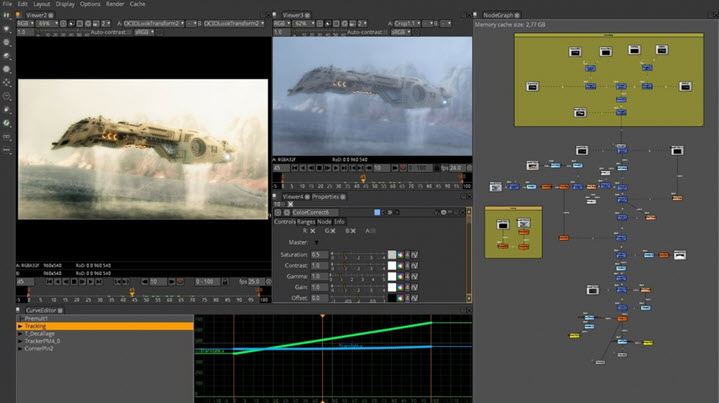
Features:
- Support adding more than 100 nodes in compositing.
- GPU accelerated rendering enabled.
3. HitFilm Express
Platform: 64-bit operating systems only, Windows 8/10, macOS 10.14 Mojave or above
Price: Free with add-on packs
HitFilm Express is one of the best free video editor with special effects for VFX hobbyists. Unlike other prosumer VFX software on this list, HitFilm offers both video editing features and VFX compositing functions in one suite, catering for independent filmmakers and hobbyists, who might need to take care of video editing and visual effect post production all on their own.
As for compositing, HitFilm Express adopts the layer-based mechanism. You can stack layers of assets to build a composite shot, utilizing masks, alpha-channel enabled assets, and transformation tools to customize the scene. The best part is, these CG visual effects shot can then be incorporated into the main edit, as the editor and compositing tools work together in a single package. With a streamlined design, creators can freely resort to features such as masking, animation, motion tracking, 3D camera tracking, and keying to breathe new life into the project.
Read our full review of HitFilm Express to learn more.
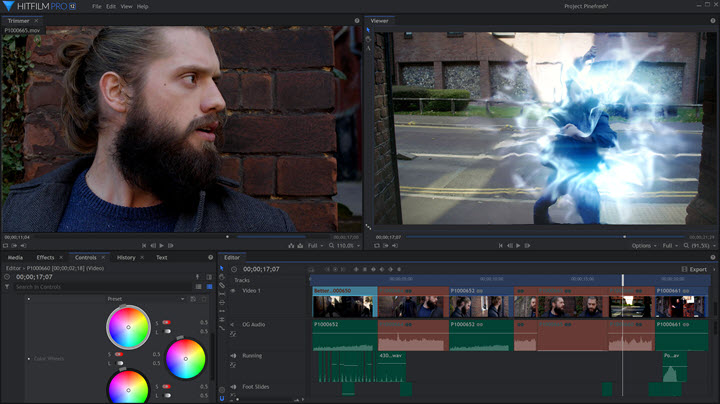
Features:
- Support transferring Mocha planar tracking data to HitFilm.
- Essential VFX features such as keying, compositing, particle simulations are offered along with video editing.
- Keyframe animation supported.
4. Blackmagic Fusion
Platform: Windows 11/10; macOS 10.14.6 Mojave or higher, Linux CentOS 7.3
Price: $299
Fusion by Blackmagic is one of the best free VFX software for motion graphics and compositing. The node-based workflow allows you to connect processing types and transmit attributes. There are powerful features such as the planar tracker and delta keyer introduced in the latest release. The planar tracker works in a way to follow an area of a shot, creating a flat plane – as opposed to the classic point tracker – and thus allowing for a more solid tracking to stabilize the shot. Delta keyer takes color difference into account, and works nice even if your green screen is unevenly lit. With advanced algorithm, the delta keyer can discriminate colors that represent the foreground object from an uneven colored screen.
For Independent filmmakers, hobbyists or editors looking to expand their VFX knowledge, Fusion is a nice choice. As an already powerful and comprehensive visual effects suite, together with DaVinci Resolve, the artists will have a powerful combo for the post work, at much lower price than the After Effects plus Premiere workflow.
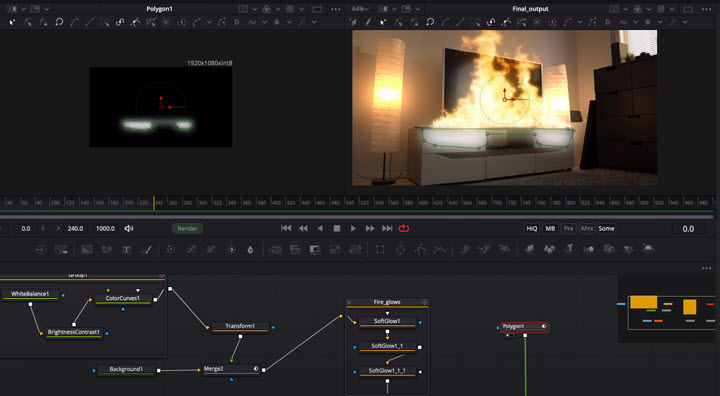
Features:
- Powerful 3D camera tracker to rebuild camera movement.
- Planar tracker that performs as well as Mocha Pro for general tracking purpose.
- Legally licensed for Apple ProRes Encoding.
5. Cinema 4D
Platform: Windows 11/10 64-bit Version 1809 or higher; macOS 10.14.6 or higher; CentOS 7
Price: $59.91/month; $719.00 billed annually
Developed by Germany-based company Maxon, Cinema 4D has been around for 30 years. This high-end tool excels in 3D modeling, visual effects, animation, painting and rendering, making it a popular program among 3D animators and motion graphics professionals. Its popularity and degree of professionalism can be seen from a dazzling array of films and TV episodes it has been used for, such as Spiderman, The Lion King, Avengers: Endgame, Beowulf and many more.
Cinema 4D offers users a seamless experience thanks to the integration with a wide range of design tools, including After Effects, Photoshop, Illustrator, and other CAD applications. Take the CINEWARE in C4D as an example, it allows you to integrate 3D modeling directly from the program into After Effects, with photo-realistic rendering. The ease of use and endless possibilities make it a powerful tool for graphic designers, engineers, architects, medical researchers, and AR/VR developers. There are various modeling modes available: parametric, polygon, volume modeling, sculpting, procedural modeling, with advanced texturing and lighting.
Features:
- Abundant texturing tools for materials and shaders.
- Powerful MoGraph module for motion graphics.
- Bodypaint tool to deliver a good-quality render at fast speed.
6. Autodesk Maya
Platform: Windows 7(SP1), Windows10 Professional, Windows 11/10 version 1607 or higher operating system
Price: $280 one year subscription
Autodesk Maya is powerful video effects software that helps artists to create 3D animation, rendering, modeling and simulation. It is probably the largest software ever coded on this planet, and all those powerful features bring us the epic scenes in Blockbusters such as The Lord of the Rings: The Two Towers and Star Wars.
For VFX creators, there are many handy tools in Maya that helps to render your imagination into reality. You can resort to auto-rigging, hair tools, and hypershade tool for more technical control, and create models and assets with organic shapes and texture. As for performance, the biggest improvement in the late release is the animation cache playback. Users now can enjoy a smoother experience, thanks to the dynamic support with a new layered evaluation system and GPU enabled smoothing. Models and shaders update in almost real-time in the viewport. Another exciting feature is the Proximity Wrap tool, which is GPU-accelerated too. It delivers smother interactions with facial rigs and muscle systems by calculating how the geometry manipulates the surface model.
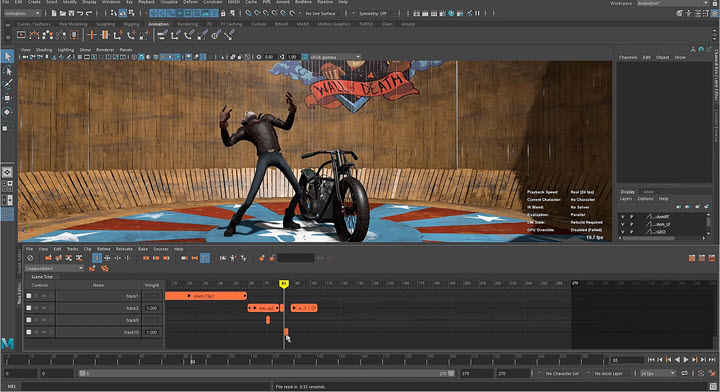
Features:
- New Remesh and Retopologize features to enhance your modeling.
- Adaptive foam and Bifrost feature to enhance liquid simulation.
- Comprehensive set of sculpting tools for artists to create life-like models.
- Seamless integration with other VFX tools for specialized feature.
7. Nuke
Platform: Windows 11/10 (64-bit only); MacOS Catalina 10.15 or higher
Price: $5,248 permanent licene with 1 year maintenance plan
Nuke is a versatile visual effects and compositing tool produced by the Foundry. Unlike layer-based compositing software, Nuke adopts a node-based system that can make compositing quite easier. Yet it would be challenging if you are from After Effects. The node-based workflow allows you to obtain a complete overview of the whole project, with a clear display of the relationship between the different nodes.
Nuke finds its popularity for in-house use, and you can see big names such as Walt Disney Animation Studios, Blizzard Entertainment, and DreamWorks among its users. This VFX software allows you to build up 3D stuff and combine it with any 2d footage. You can create fake lights to render real-world effects, and mix the 3D compositing to the live footage. With advanced analyzer, you can key out live elements from the shot, and generate layers for compositing. Nuke embraces customization, allowing maximum flexibility for its users. There are a bunch of official plug-ins for keying and blurring effects, and you can create your own tool sets and plug-ins.
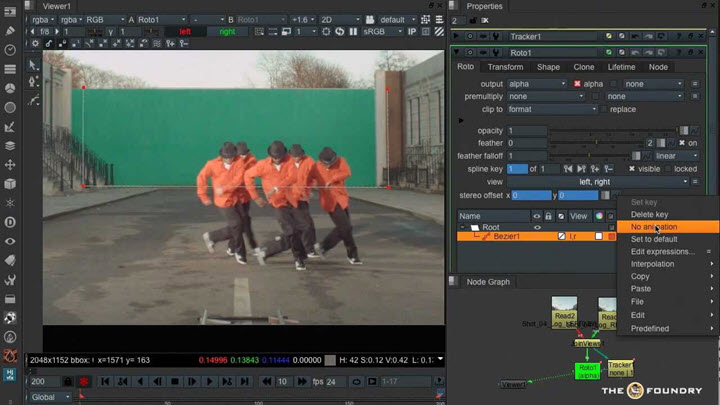
Features:
- Native support for USD and other 3D formats.
- Implementation of SyncReview to make it easier for remote team work.
- GPU support for SphericalTransform and Bilateral nodes.
8. Houdini
Platform: Windows 8, 8.1, 10 64-bit only; macOS 10.13 or higher 64-bit only
Price: Free learning edition, and various versions starting from $269 USD
Presented by Side Effects Software, Houdini is evolved from the 3D graphics suite PRISMS, and serves artists working in VFX, VR, video games, TV shows and films. Houdini is most renowned for its powerful dynamic simulation tools, which delivers particle effects that simulate life-like elements, such as liquid effects. It also has powerful volumetric systems in-built for the creation of fire, clouds, smoke simulations and other video special effects.
Houdini uses the node-based system that allows you to return to a previous version or review the iterations easily, thus making the complex 3D modeling tasks more efficient, especially when dealing with a client's feedback. You can experiment with numerous nodes to build or remove certain parameters. For plug-ins and extensions, it supports 3-rd party rendering engines, and scripting via Python API, allowing for the automation of certain tasks to enhance efficiency.
Disney movies such as Frozen and Zootopia have employed Houdini, and some visual effects in Game of Thrones are also created in this VFX software.
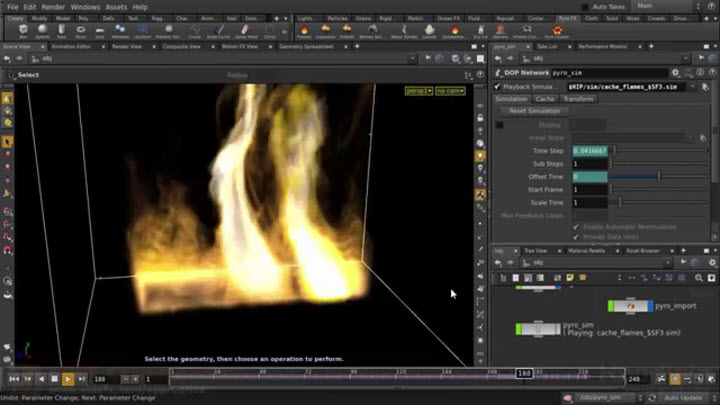
Features:
- Powerful to build dynamic simulations with a large amount of data.
- Handy tools for rigging and character animation.
- Non-destructive procedural based workflow.
- Nice integration to run Houdini assets in other VFX software such as Maya and Cinema 4D.
About VFX
Visual effects (VFX) are imagery elements that don't exist in real word during on-set shooting. It is created to be incorporated as an integral part of the video. In the past, it could be done physically, such as drawing on glass for matte painting. Thanks to computer graphics science, now you can use CGI (computer-generated imagery) and VFX software to nail the task.
VFX is a covering term with overlapping concepts and ideas. Generally, it involves compositing, 3D modeling, and animation. It is sometimes used interchangeably with the term special effects (SFX). The distinction between VFX and SFX grow in recent years due to the development of digital film-making. While VFX largely refers to assets created outside a live action shot, SFX are accomplished on-set. For instance, there are fire and explosions made by pyrotechnicians, physical wind, rain and fog for atmospheric effects, and miniatures and giant puppets. Still, you will need compositing and 3D modeling software to blend these effects into the movie.
Here are some visual effects fundamentals:
- Keying uses green screen (or blue screen) and remove it with VFX software to create desired effects.
- Tracking replicates the camera movement from the shot and apply it to the elements that are added in post production. It analyzes the movement, offering you several tracking points to select as a reference, so as to parent the elements to the movement. In this way, the elements blend in the shot, as if it was there on set.
- Rotoscoping, or roto, allows you to trace an object frame by frame, and create a matte to key it out. In this way, you can put something in between the cut out part and the background. It is useful when the green screen isn't working, or you don't have a pure colored background at all.
- Compositing stacks all the elements into the shot and makes them fit to the scene. For instance, you key out a "ghost" and put it over a TV, as if the ghost is cropping out from the TV. Or camera tracking a boat's movement, and put a CGI lion that moves along, as if the lion was on the boat in live action (Yes, I am talking about Life of Pi). Or you can roto people jumping from a car in explosion, where the fire and smoke are CGI.
- Rigging creates joints and bones to animate a character. Once your character is rigged, you can make it to run, raise an arm, or wave hands. Besides generalist VFX software, rigging is essential for dedicated animation software.
- Then there are 3D stuffs, such as texturing, modeling, and 3D lighting. Powerful 3D software nowadays are capable of generating millions of tiny points, which add up to make fire, smoke or water effects as vivid as in real life, and that's known as particle effects or particle simulation.
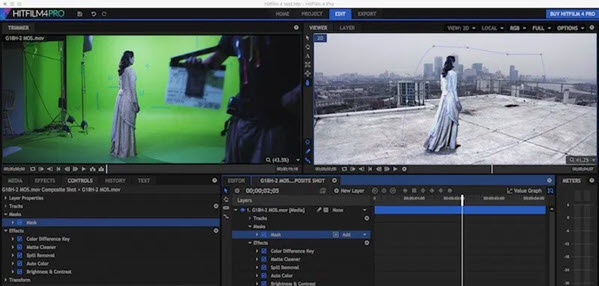
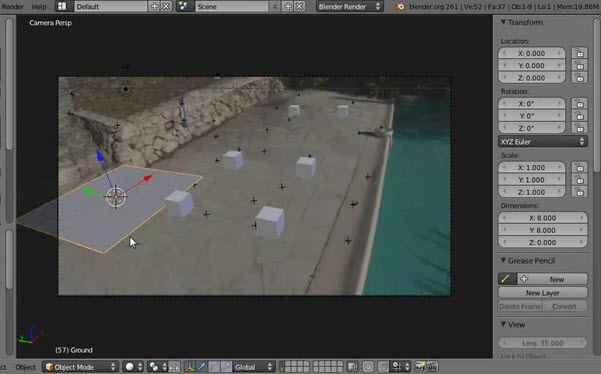
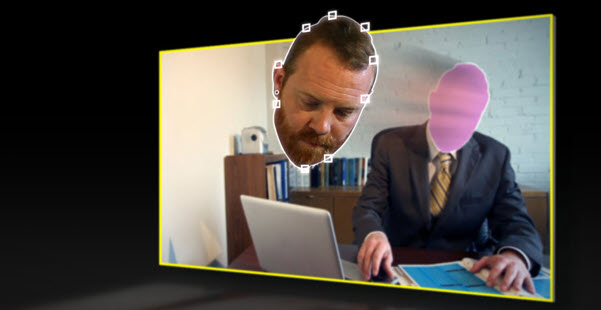
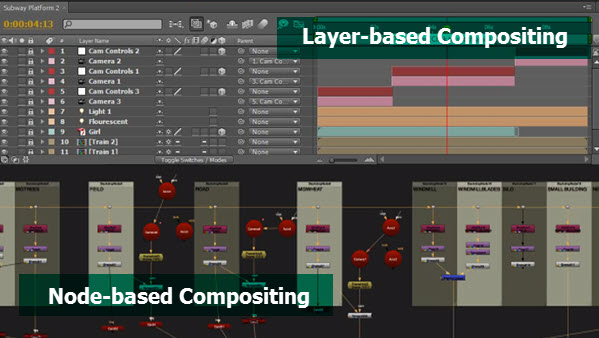
Bearing in mind these concepts, you can take a step further and set your hands on visual effects software. There are comprehensive programs covering every aspect, and there are also specialized ones that only deal with, for example, compositing. Many studios also developed plug-ins to address specific problems, such as Mocha for planar tracking.
For beginners and pros, you can find one of the following tools useful. We list free and open-source VFX software in the beginning, followed by paid-for options.
Over to You
Applying special effects and VFX in a video isn't exclusive to professionals. You can use green screen software to create interesting content. If you have no idea of where to get started, you can learn from movies by going through scenes, and analyze all the elements needed to achieve those visual effects. Here is a detailed guide on how to break down a VFX scene.

